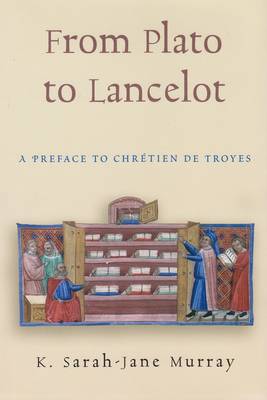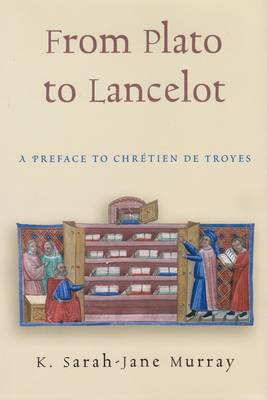
- Afhalen na 1 uur in een winkel met voorraad
- Gratis thuislevering in België vanaf € 30
- Ruim aanbod met 7 miljoen producten
- Afhalen na 1 uur in een winkel met voorraad
- Gratis thuislevering in België vanaf € 30
- Ruim aanbod met 7 miljoen producten
Zoeken
€ 45,95
+ 91 punten
Omschrijving
Considered the most important figure in medieval French literature, Chrétien de Troyes is credited with inventing the modern novel. The roots of his influential Arthurian romance narratives remain the subject of investigation and great debate among medieval scholars. In From Plato to Lancelot, K. Sara-Jane Murray makes a highly original and profoundly significant contribution to the current scholarship by locating Chrétien's work at the intersection of two important traditions: one derived from Greco-Roman antiquity, the other from the Celtic world of the Atlantic seaboard.
Drawing on a broad range of sources, from Plato's Timaeus and Ovid's Metamorphoses to the anonymous Lais translated in the twelfth century by Marie de France, Murray demonstrates that Chrétien and his contemporaries learned the importance of translation from the Mediterranean-centered classical tradition. She then turns to the Celtic world, examining how Irish monastic scholarship, as demonstrated by the Voyage of St. Brendan and Celtic saints' lives, profoundly influenced the cultural identity of medieval Europe and paved the way for an interest in Celtic stories and legends. With breathtaking insight and lucid prose, Murray illustrates that Chrétien's singular genius lay in his ability to look to the future and to lay the foundations for a thoroughly new, and French, tradition of vernacular storytelling.Specificaties
Betrokkenen
- Auteur(s):
- Uitgeverij:
Inhoud
- Aantal bladzijden:
- 336
- Taal:
- Engels
- Reeks:
Eigenschappen
- Productcode (EAN):
- 9780815631606
- Verschijningsdatum:
- 1/06/2008
- Uitvoering:
- Hardcover
- Formaat:
- Genaaid
- Afmetingen:
- 163 mm x 234 mm
- Gewicht:
- 612 g

Alleen bij Standaard Boekhandel
+ 91 punten op je klantenkaart van Standaard Boekhandel
Beoordelingen
We publiceren alleen reviews die voldoen aan de voorwaarden voor reviews. Bekijk onze voorwaarden voor reviews.











